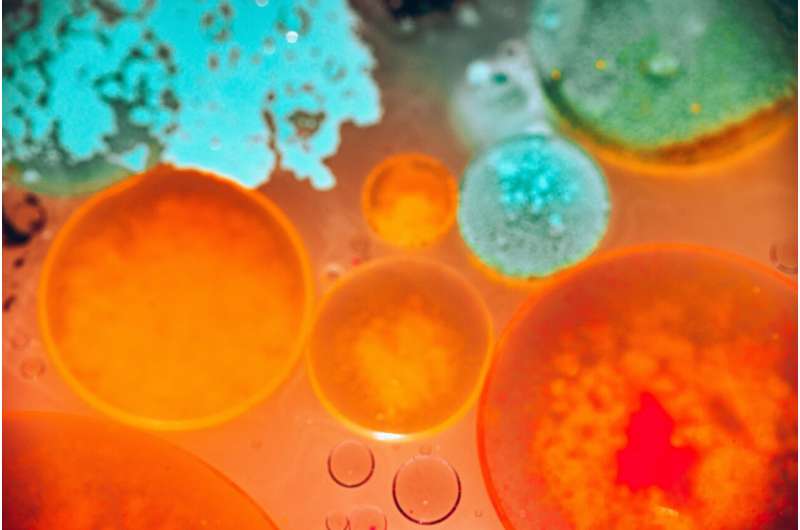Credit: CC0 Public Domain
Most people would think nothing of sharing a bed, knife or fork with their spouse, but would you ever share poo?
As gross as it sounds, faecal transplants are 90 per cent effective at treating recurrent gut infections, but UWA Professor Tom Riley says preventing infection is poo-loads better than the cure.
Prof Riley has studied the potentially deadly Clostridium difficile gut infection (CDI) for 40 years, and says taking antibiotics to treat other infections is the biggest risk factor in inadvertently contracting C. difficile.
"Antibiotics kill all the normal good bugs in the gut, so C. difficile can get in there and do its thing," he says.
C. difficile's 'thing' is causing infectious diarrhoea: in 2004 in Quebec, Canada, CDI caused more than 7000 CDI cases and 1270 deaths.
For decades, CDI has infected predominantly older, hospitalised patients, but Prof Riley says virulent strains are now infecting younger people in the wider community.
"In Australia we're in the midst of an epidemic of community-acquired infection," he says.
"These people don't get a severe disease, because they're inherently healthy, but my big concern is that these virulent strains will get into the hospitals, and then people will die."
Top-down or bottom-up?
In adult humans, C. difficile grows best in a gut cleansed of its natural flora by antibiotics, so faecal transplants work by re-introducing billions of competing bacteria from a healthy gut.
"Generally speaking, you choose your spouse's poo, because your spouse's flora is most like yours," Prof Riley says.
"What's happened in the [USA], and even here, is to set up poo banks, like blood banks, where the whole process of screening for viruses and infections is done and the specimens are stored, ready to be transplanted.
"You have two options, the top-down approach, or the bottom-up approach, so you either do it via endoscopy or colonoscopy," Prof Riley says.
Avoiding CDI
To minimise your chances of CDI, your best bet is to maintain a healthy biome.
"Avoid antibiotics if they're not really necessary… you have to have that insult to your gut flora before you're susceptible to C. difficile infection," Prof Riley says.
If you have been taking antibiotics, Prof Riley says it's important to wash with soap-and-water, as alcohol disinfectants won't kill C. difficile spores.
"Anywhere there's animal manure, you're likely to find C. difficile, so you need to be very careful about washing your hands and vegetables," he says.
Provided by Science Network WA
This article first appeared on ScienceNetwork Western Australia a science news website based at Scitech.




















